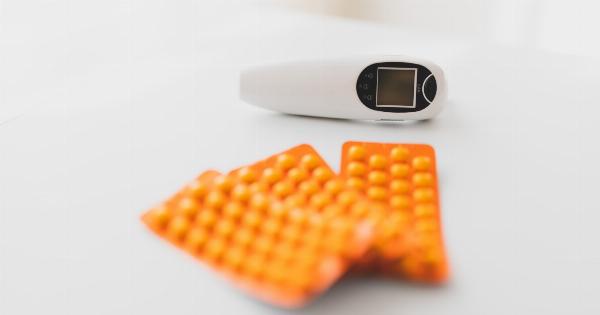Feeling a tickle in your throat or a stuffy nose? These could be the early signs of a cold.
While it’s impossible to completely prevent a cold from developing, there are several measures you can take to combat the early symptoms and potentially shorten the duration of your cold. By recognizing the signs and acting quickly, you can help alleviate discomfort and get back to feeling your best. In this article, we will discuss some effective strategies to combat the early symptoms of a cold.
1. Stay Hydrated
Drinking plenty of fluids is crucial when dealing with a cold. Hydration can help thin out mucus, relieve congestion, and prevent dehydration. Opt for warm fluids like herbal tea, chicken soup, or hot water with lemon and honey.
These can provide soothing relief for a sore throat, promote nasal drainage, and offer temporary relief from congestion.
2. Rest and Sleep
One of the best ways to combat a cold is to get enough rest and sleep. When you feel the early symptoms of a cold, make an effort to rest and relax. Adequate sleep and rest can help strengthen your immune system to fight against the cold virus.
It also allows your body to divert its energy towards healing and recovery.
3. Use Saline Nasal Sprays
Saline nasal sprays can be incredibly helpful in combating the early symptoms of a cold. These sprays can help moisturize nasal passages, relieve congestion, and flush out irritants such as viruses and bacteria.
Saline sprays are safe and can be used multiple times a day to keep your nasal passages moist and clear.
4. Gargle with Salt Water
Gargling with warm salt water is a traditional remedy for soothing a sore throat, reducing inflammation, and killing bacteria. Mix half a teaspoon of salt in a glass of warm water and gargle with this solution several times a day.
It can help reduce swelling and provide temporary relief from a scratchy and irritated throat.
5. Use Over-the-Counter Medications
Over-the-counter medications can help alleviate the symptoms of a cold. Non-prescription decongestants and cough medicines can provide temporary relief from congestion, coughing, and sneezing.
Be sure to read and follow the instructions and talk to a healthcare professional if you have any concerns or pre-existing medical conditions.
6. Take Warm Steam Showers
Taking warm steam showers can help soothe nasal congestion and relieve a stuffy nose. The warm steam promotes nasal drainage and can be particularly beneficial if you are experiencing sinus pressure.
For added benefit, you can add a few drops of eucalyptus or peppermint oil to the shower floor to enhance the steam’s decongestant effects.
7. Use a Humidifier
Using a humidifier can add moisture to the air and help alleviate congestion and dryness caused by a cold. Dry air can irritate nasal passages and worsen cold symptoms.
A humidifier can create a more comfortable indoor environment and make it easier to breathe.
8. Eat Nutritious Foods
A well-balanced diet rich in vitamins and minerals is crucial for supporting a healthy immune system. Include plenty of fruits and vegetables in your diet, as they are packed with immune-boosting antioxidants.
Foods high in vitamin C, such as citrus fruits, strawberries, and bell peppers, can help reduce the duration and severity of cold symptoms.
9. Practice Good Hygiene
Practicing good hygiene can help prevent the spread of the cold virus and reduce the severity of symptoms. Wash your hands frequently with soap and water, especially before eating or touching your face.
Avoid close contact with individuals who have a cold, and consider wearing a face mask if you are in a crowded or high-risk environment.
10. Stay Positive and Reduce Stress
Maintaining a positive attitude and reducing stress can have a significant impact on your overall well-being and immune system. Chronic stress weakens your immune response, making you more susceptible to infections.
Engaging in activities you enjoy, practicing relaxation techniques such as deep breathing or meditation, and seeking support from loved ones can help reduce stress levels and promote a healthy immune system.

























